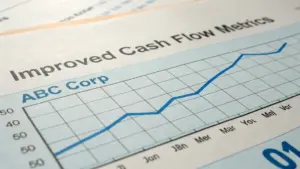Developing a comprehensive budget is a crucial step in managing finances and achieving business goals. A well-defined budget provides a roadmap for allocating resources, tracking expenses, and ensuring financial stability. It allows businesses to anticipate potential challenges and make informed decisions about resource allocation. A budget serves as a benchmark for evaluating performance and identifying areas for improvement. Implementing a robust budgeting process involves careful planning and forecasting. This includes analyzing historical data, identifying potential expenses, and considering market trends. By accurately forecasting future needs, businesses can allocate resources effectively and avoid unexpected financial strain. This proactive approach allows businesses to adapt to changing market conditions and maintain financial stability. Regular monitoring and adjustments to the budget are essential for maintaining financial control. This involves tracking actual expenses against the budget, identifying variances, and making necessary adjustments. By closely monitoring the budget, businesses can identify areas where expenses are exceeding projections and take corrective actions. This proactive approach ensures that the budget remains aligned with the company’s financial goals and objectives.
Strategies for Effective Budgeting in Your Business
Creating and sticking to a budget is essential for managing finances and achieving business goals.



